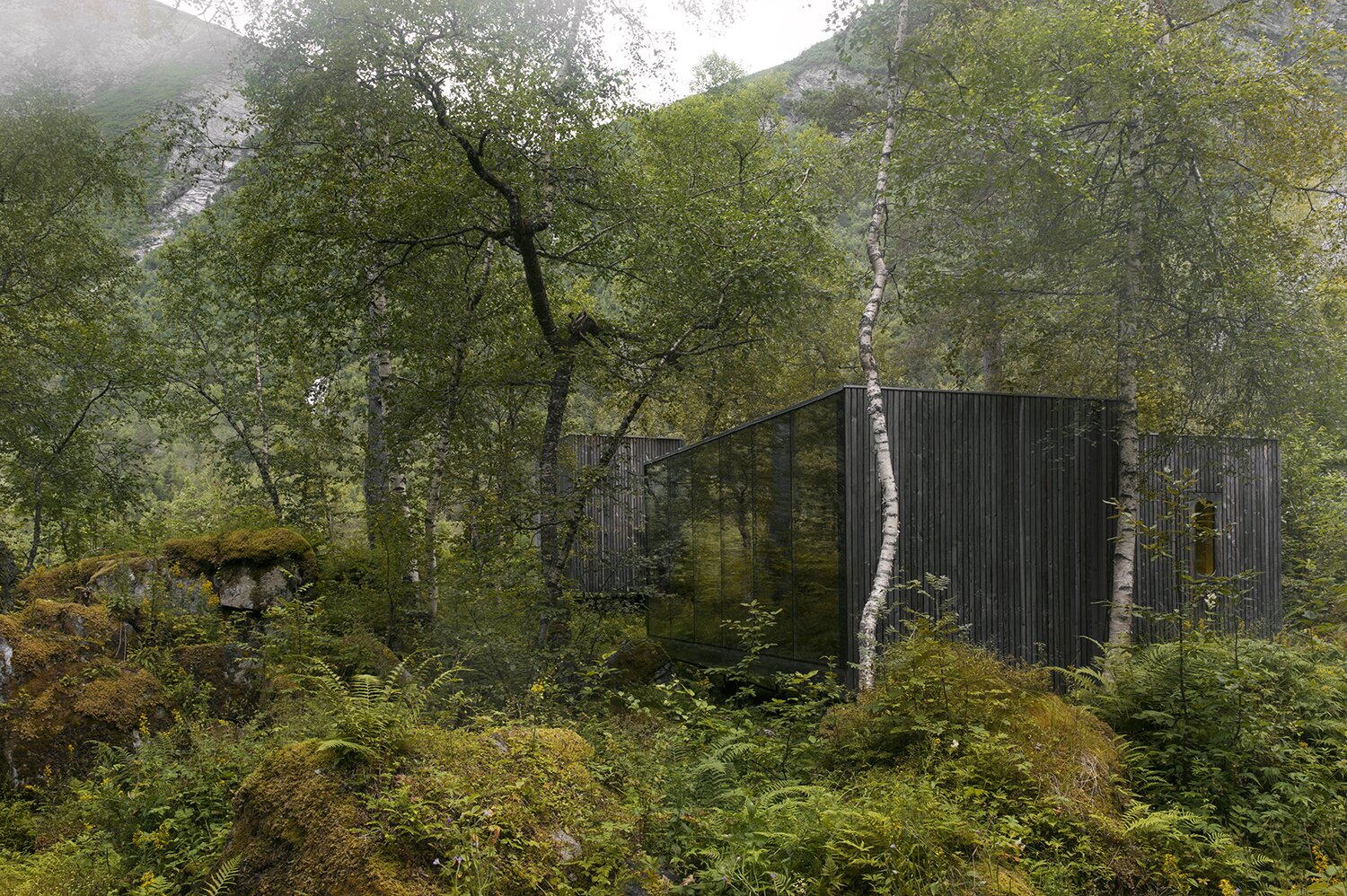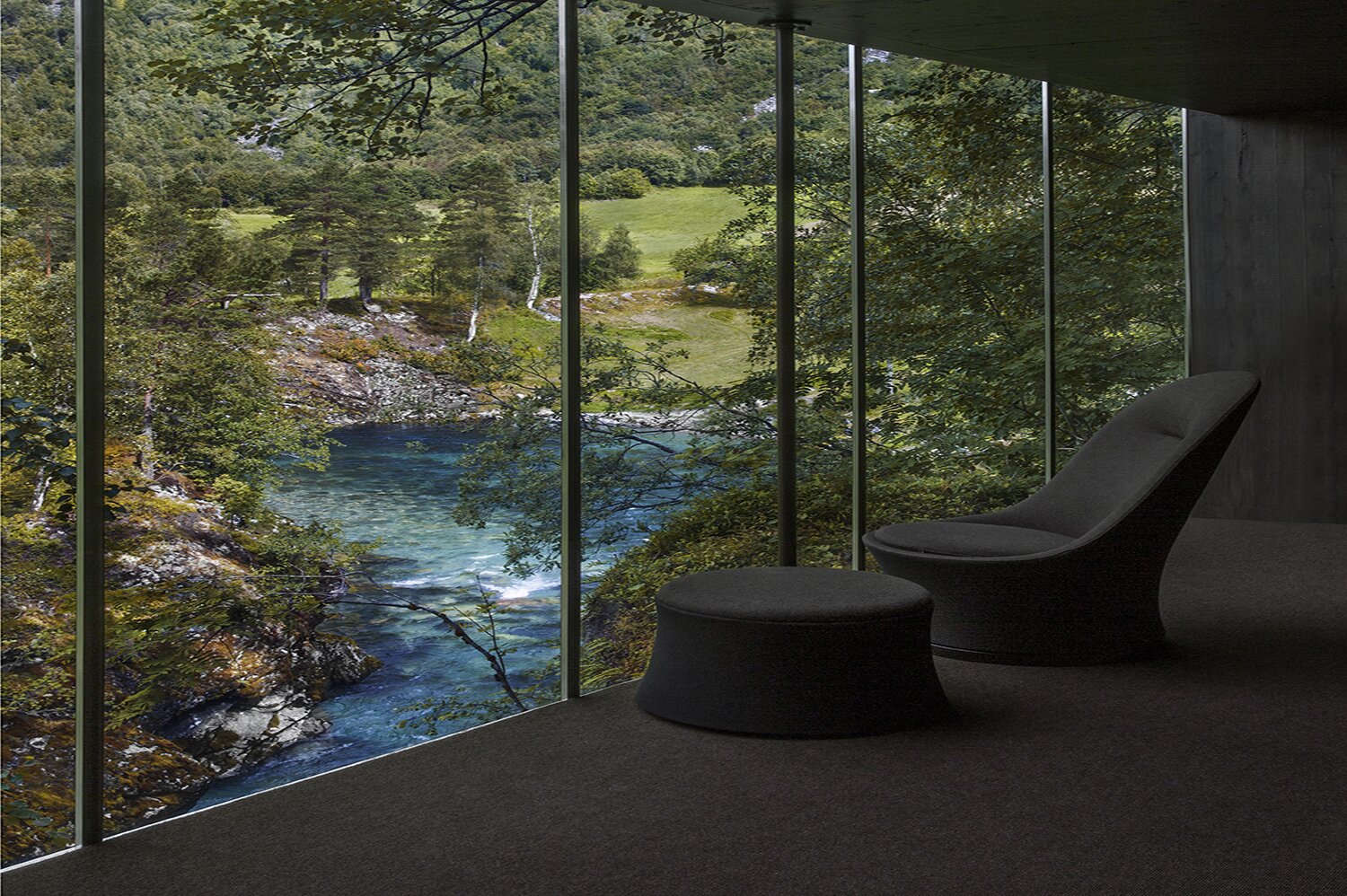My plane descends on the port of Ålesund, an hour and a half west of Valldal, where mountains emerge from the sea like giant whale heads rising up to greet me. Ålesund is the hometown of Knut Slinning, owner of the Juvet Landscape Hotel. The town, known for its unique concentration of Art Nouveau buildings, is also where the hotel’s head chef, Christopher Schønefeld, and resident jack-of-all-trades, Erik Hildestrand, grew up. With the UNESCO- protected west Norwegian fjords ever present in the distance and the promise of mid-summers filled with the world’s best-tasting strawberries, it is not hard to see the appeal of escaping into the mountains for ten months of the year to run the quiet nature retreat that is Juvet. It is my final stop on a night-time journey through mountain tunnels along a 110 kilometre fjord I do not even realize is there.
Tall, fair, and full of information, chef Christopher Schønefeld has a van waiting to give me a lift from Valldal’s gas station bus stop to the hotel. It is clear that everyone here helps with what they can. Schønefeld came to work at Juvet in April 2015 after approaching Knut Slinning with some ideas for the kitchen’s future. Now the hotel’s first formally trained chef is giving its countless guests, including the rising star of Nordic cooking chef Magnus Nilsson, another reason to visit. A former cowshed has been restored to function as the hotel’s cosy, red dining hall and lodge. Red because, as Christopher Schønefeld tells me, it was traditionally the cheapest colour of paint. Removed from the glare of city lights, the sky is brimming with stars. The remoteness of Juvet is sinking in. It is calm. Quiet, except for the sound of running water at the foot of the hill. I can sense the moun- tains around me, hidden in the dark.
Inside the antique-furnished lodge, a simple, flavourful meal of cod, roasted vegetables, and potato is ready. Comfort food. As is the beer from the local Troll Brewery, which, from the label design, looks like it was brewed in Middle-earth. After my 12 hours of travelling, Schønefeld could tell me that is where we are, and I would readily believe it.
Over coffee I learn how he honed his cooking skills at a young age in the kitchens of Europe, eventually working his way up to a position as head chef in Zurich, where he earned his restaurant a Michelin star. “The way Michelin works,” he humbly explains, “is they come in and have a meal without anyone knowing. Then they thank you, give you their card before leaving, and you don’t hear anything until the guide is published.”The 36-year-old chef is, however, done chasing stars now and is more interested in good, local food. He feels at home foraging for herbs, wild- flowers, and berries in the area around the hotel using what he finds for oils, sorbets, pickling, and garnishing. He envisions building a greenhouse on the grounds and doing more with fermenting as the seasons change. But what he enjoys the most is the element of surprise.
“I like going to a restaurant where you don’t expect much, and then getting wowed by the food,” he says. “I remember being impressed by the simplicity of a dish of no more than five ingredients. It was the surprise of how good something so simple can be.”

